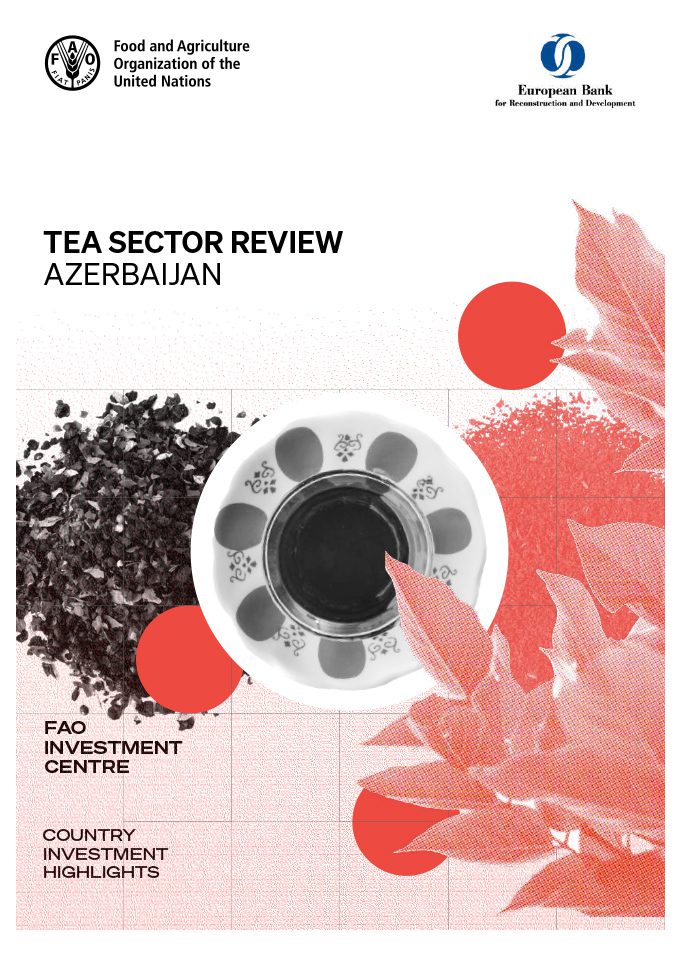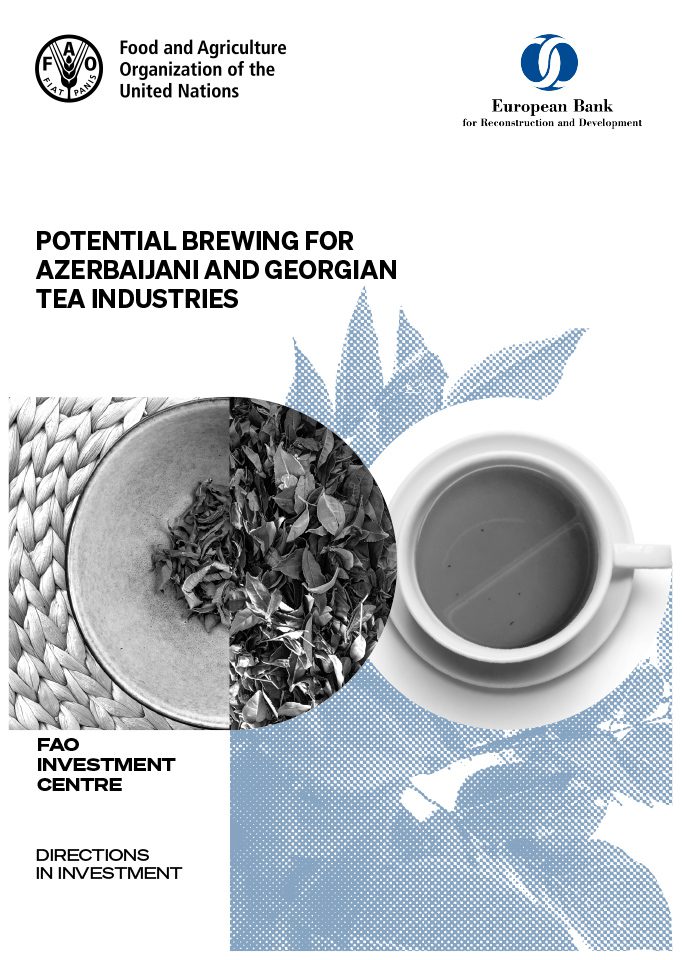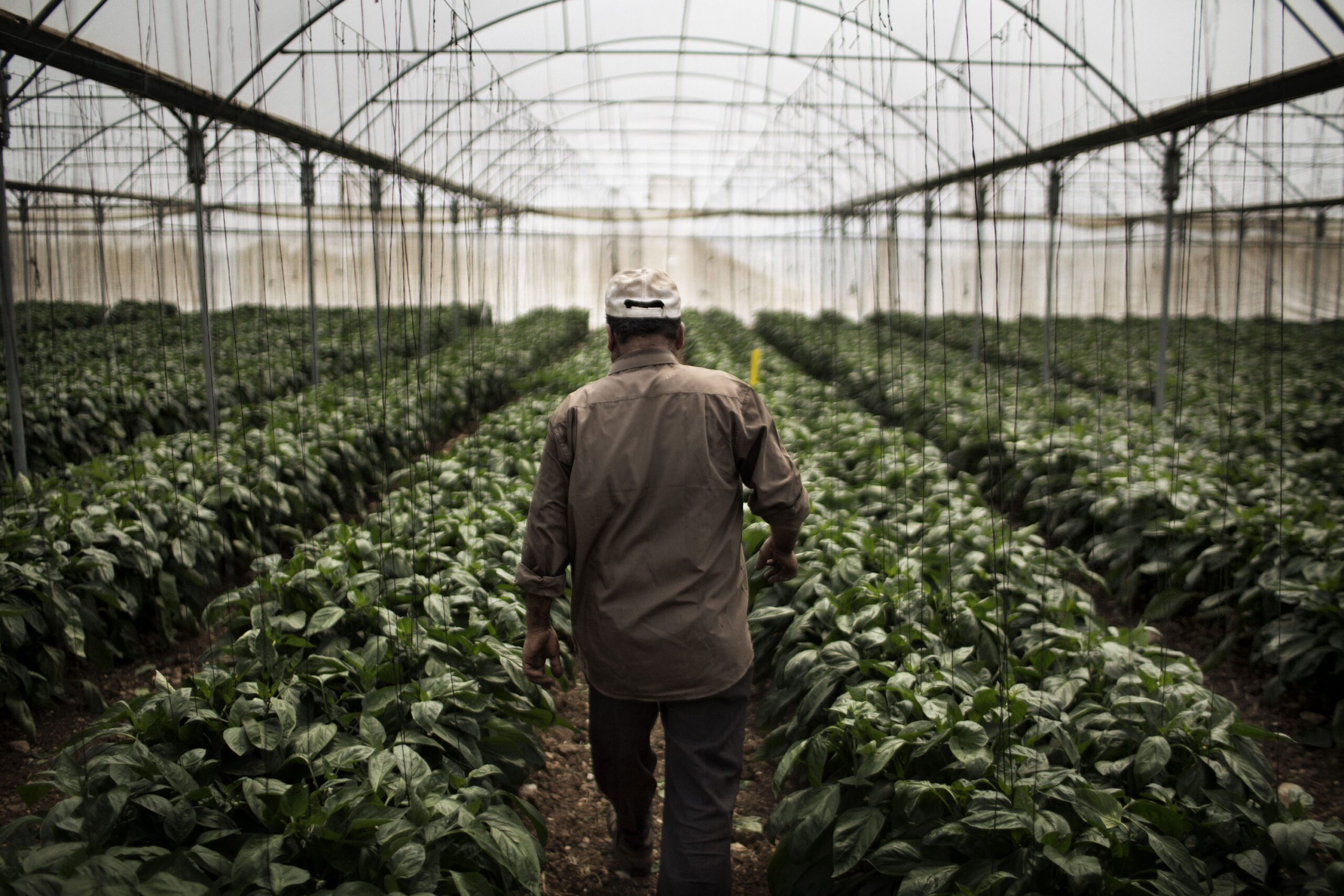PROJECT SUMMARY
Improving tea quality while anticipating climate risks could change the fortunes of two ancient tea-producing industries according to two reports from the EBRD and FAO.
Improving tea quality while anticipating climate risks could change the fortunes of two ancient tea-producing industries, Azerbaijan and Georgia. FAO and the EBRD joined forces to provide analytics and policy directions, with a view to revive the tea sector in these two countries countries. At stake are lots of potential new jobs in rural areas.
CONTEXT
A review carried out by the EBRD and FAO provides insights into reviving the fortunes of Georgia and Azerbaijan’s historic tea-producing past. Considered part of one of the world’s northernmost tea-producing regions, the two countries supplied most of the tea drunk in the Soviet Union until its collapse in the 1980s. Today they account for less than 0.05 percent of global tea production, while a growing global taste for high-quality artisan teas, in particular green, health and wellness teas, could help reverse this decline.
Investments to meet stringent organic production standards and comply with strict rules of origin certification could open new doors to potentially lucrative export markets, including in Europe and North America.
From an environmental sustainability perspective, the development of tea production in Azerbaijan and Georgia if done properly, may also have beneficial effects in terms of carbon neutrality and improving soil quality. However, climate-related risks to the sector need to be anticipated, including the possible introduction of new pests and higher irrigation needs.
Activities
The EBRD in partnership with FAO, and through discussion with both public and private stakeholders, assessed the tea sectors in Azerbaijan and Georgia to identify areas of improvement and opportunities for potential investment, considering:
Recent developments and challenges for tea production include international and domestic market developments, key factors of growth and sector challenges.
Production and quality in comparison with other tea-producing countries including compliance with international quality standards and possible quality improvements at the various stages of production and processing.
Potential for growth in domestic and export markets including costs and returns compared to other tea-producing countries, and, at the domestic level, compared to other crops.
The environmental impact of tea production and the potential risks posed to it by climate change.
Achievements
In 2021, the project concluded with the publication of three reports which include recommendations to:
- improve production practices of black tea and consider the production of specialty teas (especially green teas), organic certification and the introduction of rules of origin;
- support improved integration of the industry, for example, through smallholder equity and inclusion schemes and reassess government support to the tea sector in comparison with alternative crop profitability as well as under future climate scenarios;
- strengthen quality and food safety standards, coordination between producers and processors, and sample analysis to anticipate food safety risks; and
- consider introducing rules of origin and Geographical Indications for Made in Azerbaijan/Georgia brands.
In Georgia, there is a strong private sector endorsement of the recommendations including:
- the creation of a tea working group that has strong private sector participation under the Agrarian Committee of the Parliament of Georgia;
- revision of labelling regulations will establish strict rules for tea produced in Georgia vs imported tea packed in Georgia;
- development of a private sector initiative to link tea production with agritourism; and
- a marketing strategy to promote Georgian tea characteristics and quality.






































